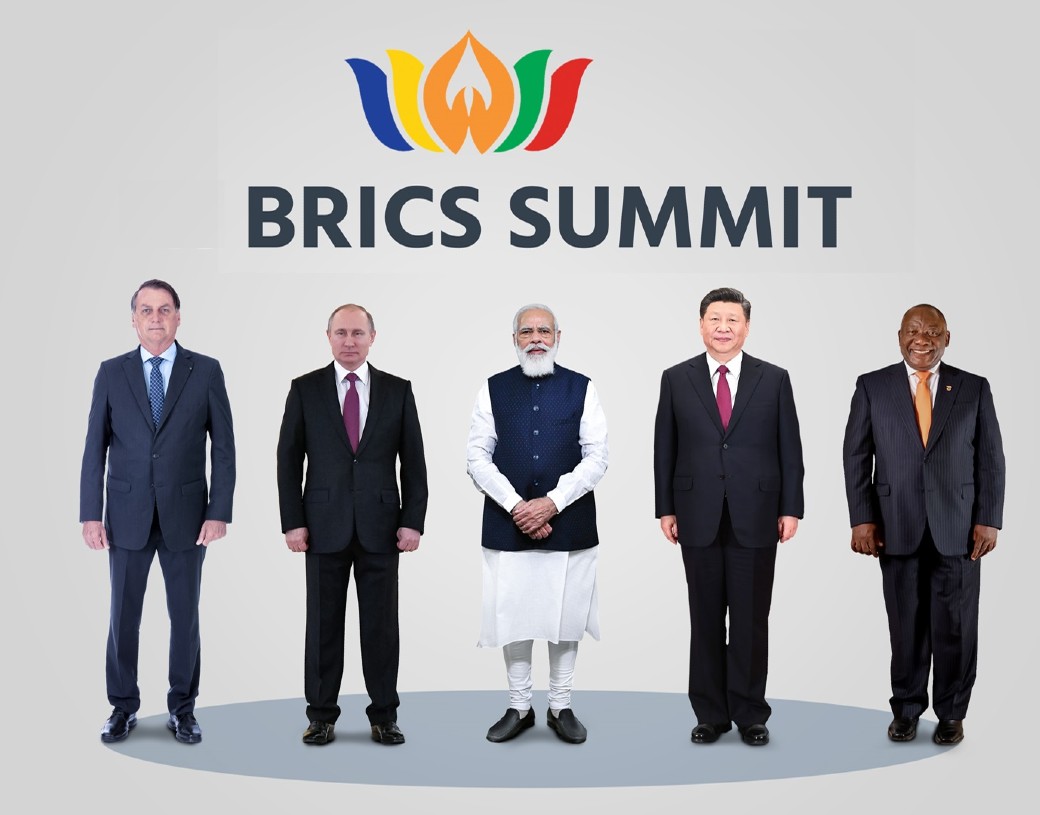Comments by Cheryllyn Dudley,
Political Analyst for DiaLOGOS, SharedFuture, GSKI, author, and former MP RSA 1999-2019.
“Many agenda’s are of course always in play, however, if significant numbers choose peaceful solutions and respect for one another there is always hope.”
BRICS Leaders are expected to attend the 15th BRICS Summit in South Africa from 22 – 24 August 2023. The Summit will be hosted at the Sandton Convention Centre (SCC) in Johannesburg, Gauteng.
The focus will be "BRICS and Africa: Partnership for Mutually Accelerated Growth, Sustainable Development, and Inclusive Multilateralism." The main goal is to increase, deepen, and broaden cooperation among its member countries to promote sustainable and fair growth that benefits everyone, taking into account the progress of all member nations.
"Accelerated growth" and "sustainable development" are terms we are familiar with, and even skeptics would agree with the concepts being beneficial. In contrast, "Inclusive Multilateralism" and "de-dollarisation" may be concepts we have not applied our minds to quite so much. How, you might ask, does this apply to us today, and what might it mean for generations to come?
Separating facts from fears and fiction.
"BRICS" is the acronym denoting the emerging national economies of Brazil, Russia, India, China, and South Africa. Interestingly, the term was originally coined in 2001 as "BRIC" by the Goldman Sachs economist Jim O'Neill in his report, "Building Better Global Economic BRICs" (Global Economics Paper No: 66).
Why, you might wonder, is this significant? Is it a conspiracy, a capitalist ploy to control the world, or something worse? Or is it the natural result of those 'in the know' regarding economics and geopolitics, seeing the way things were and are heading and planning accordingly?
The report in which the acronym "BRIC" first appeared was on growth prospects for the economies of Brazil, Russia, India, and China, which together represented a significant share of the world's production and population at the time. What followed appears to have been a natural but purposeful plan to take this fact on board regarding the future of global economics.
Prompted by this, Brazil, the Russian Federation, India, China, and South Africa (BRICS) now form one of the world's most important economic blocs, representing more than one quarter of global GDP and 42 per cent of the world's population. An important force that clearly cannot be ignored in the world economy. It is useful to note, however, that BRICS is NOT a military alliance like NATO. It simply refers to a group of emerging countries with rapidly growing economies.
Membership expansion, on the other hand, has become part of the core agenda of BRICS. BRICS, as South African President Cyril Ramaphosa has said, is all about allowing the "voices of the marginalized to actually be heard." This is where the word 'inclusive' comes in. BRICS 2023 means new opportunities for the global south and gives new energy and hope for a world that is trying to recover from a continuous onslaught of challenges, a world that faces multiple risks, including an ever-increasing risk of nuclear war. A war which will have no victors as annihilation would be a certainty for all. Continued provocation and military threats only hasten such a scenario. Prevention being our only solution.
In this regard, BRICS can be seen as a pragmatic and relevant attempt to level the playing fields, engender hope, and facilitate positive diplomatic relations. Many agendas are, of course, always in play, however, if significant numbers choose peaceful solutions and respect for one another, there is always hope.
BRICS is an example of multilateralism, which refers to an alliance of multiple countries pursuing a common goal. It has been and is an important source of foreign direct investment in key areas such as mining, automotive, transportation, clean energy, financial services, and IT. These investments and projects lead to significant job creation, trade, and mutual investments, including through the identification of new business opportunities.
De-dollarisation refers to efforts to reduce reliance on the dollar. Something that has been on the BRICS agenda for over a decade. While the potential impact of a new BRICS currency on the US dollar remains uncertain, experts clearly consider a challenge to the dollar's dominance conceivable. Keep in mind here that the voice of Goldman Sachs, who saw the 'writing on the wall' with regard to the challenges facing the US and EU economies many years ago, foresaw the potential need to de-dollarise even then. A new BRICS currency will be no surprise to the 'who's who' in global economics. As the USA has been under the thumb of these same economic elites and capitalists for many years now, few feathers are likely to be ruffled. In other words, 'no surprises!'
This August, in South Africa, the summit of BRICS nations, which Russian President Putin is attending via zoom, comes as countries across the world are confronting a changing geopolitical landscape that is challenging the political dominance of the West. Western sanctions on Russia after its invasion of Ukraine have almost certainly accelerated the process.
Over the past year, Russia, China, and Brazil have turned to a greater use of non-dollar currencies in their cross-border transactions. Iraq, Saudi Arabia, and the United Arab Emirates are also actively exploring dollar alternatives. And central banks have sought to shift more of their currency reserves away from the dollar and into gold. The Chinese government has also expressed concerns with the dollar's dominance, labeling it "the main source of instability and uncertainty in the world economy."
The goal appears to be to create an efficient integrated payment system for cross-border transactions as the first step and then introduce a new currency.
Despite many differences among the five BRICS countries, the bloc has managed to develop joint policies and to survive major crises. BRICS has deepened its cooperation, invested in new financial institutions, and has been continuously broadening the range of policy issues it addresses. It now has a significant network of interlinked mechanisms that connect governmental officials, businesses, academics, think tanks, and other stakeholders across countries.
We can thank God for many things America has been 'to and for' many of us. Things like guarding the open seas and allowing even the smallest nations to benefit from trade relations. We can also cry out to God for His grace and mercy, not only for ourselves but for our brothers and sisters in America who have been used in agendas that have destroyed lives and disadvantaged many.
We have seen what good and evil can come from superpower status and the penchant for war that has gripped mankind from the earliest of history. Efforts using multilateralism are to be commended not revered but commended, especially efforts that prioritize inclusivity, peace, and mutually beneficial development. We are fallen people living in a fallen world, and our efforts will fall short, but there is no end to what God can and will do with our sincere though imperfect efforts.

